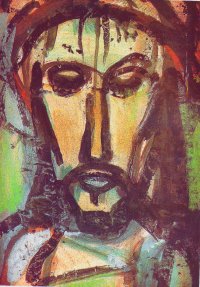IJM Cambodia Director of Aftercare Christa Hayden takes you into her work in Southeast Asia
I am sitting on the hard tile floor of a Cambodian jail cell, trying unsuccessfully to light a mosquito coil while wiping sweat out of my eyes, shooing ants away and swatting at mosquitoes. It has been two years since I graduated with my master’s degree in social work. I definitely cannot remember any of my professors lecturing on mosquito management in Southeast Asia! However, I have three small teachers with me in this jail cell, and they all pitch in to show me the fine art of keeping a mosquito coil lit and balanced on its tiny metal tray.
My wise teachers are actually three Cambodian girls, ages nine, 10 and 12, whom we helped rescue tonight from sexual slavery. International Justice Mission investigators and Cambodian national police worked together to free these children from months of torture, forced drug use, rape and pornography at the hands of a foreign pedophile and the local female traffickers in his employment.
In Cambodia, IJM’s mission is to mobilize efforts to suppress systems of commercial sexual exploitation of minors in Cambodia through assisting investigations and prosecutions, and by training Cambodia’s anti-human trafficking police. My aftercare colleagues and I work together to welcome children upon their rescue, provide crisis care while they undergo police interviews and partner with governmental social service officials to place the children in aftercare homes that provide specialized care for sexual violence survivors. After placement, we monitor the children’s recovery, prepare them to testify at trial and act as a professional resource to our aftercare partners.
At this moment, our aftercare intern is creating a sense of normalcy and play for the children as they spend the evening coloring, teaching each other songs and decorating the gray walls with colorful stickers. She is sprawled on a mat on the hard floor, drawing pictures with the two youngest rescued girls, an activity that can cross any language barrier. The girls are teaching our intern some basic Khmer words and they break into uncontrollable giggles when they hear her use the Cambodian language. The oldest child and one of my Cambodian colleagues are intently talking in a corner of the room about the child’s experiences, pain, feelings, fears and hopes; tears flow, hands are held, and conversation is often interrupted by times of emotional silence. A small space of release, freedom and acceptance has been created in the middle of a police station.
For the next three days, my teammates and I will take turns staying day and night at the police station with these three girls throughout their interviews, as this time is critical to documenting their case so that authorities can effectively prosecute their abusers. These children’s young lives have already been filled with violence, torture and betrayal beyond imagination. Shame, exhaustion, grief, loss and confusion fill their hearts and minds, and seep out through their tears as they talk with us and go through interviews with the police. The most important priority of these first few days is to provide the children with a sense of safety, hope and rest. The long road of healing and restoration will continue as the girls are placed in a loving, high-quality aftercare home.
I am so grateful for the opportunity to serve these children, work in this country with passionate Cambodian teammates and partner with innovative and committed aftercare organizations. International social work has challenged me to provide care with more adaptability and flexibility, trained me to think more broadly and creatively, and has sharpened my professional skills and cross-cultural competency. The lessons I have learned in Cambodia fill me with passion, energy and a renewed commitment to serving the hurting and the oppressed around the world. It is an honor to know these children and a joy to walk with them as they begin the long journey toward healing and wholeness.
These reflections first appeared in a different form in Catalyst, the newsletter of the North American Association of Christians in Social Work.


